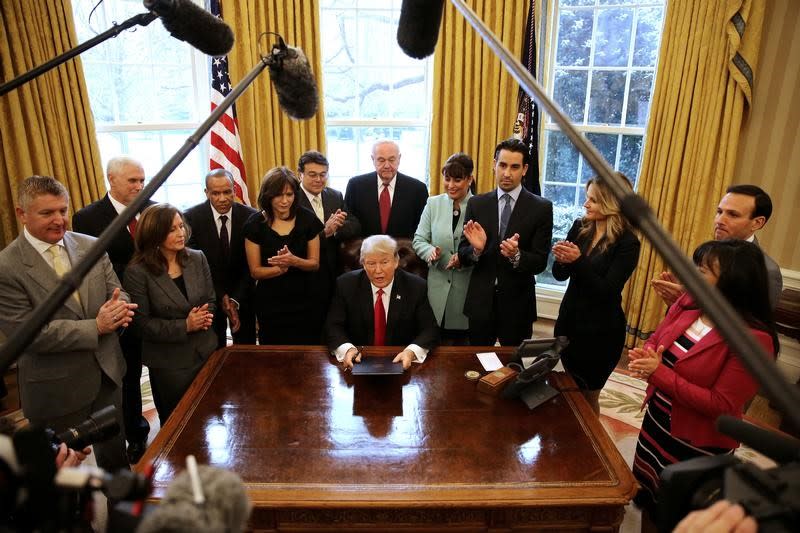Small business wages are growing, but thanks to temporary workers
President Trump has continued to emphasize job growth as his top priority. And as we await Friday’s U.S. labor report card for April, Wednesday delivered strong news for small businesses from the largest payroll processor for the group, Paychex (PAYX).
National hourly earnings in April for Paychex’s small business index were $25.67, posting solid 2.7% annual growth.
“Growth has accelerated,” according to CEO Marty Mucci. “The last three months, if you annualize it, the wage increase will be around 3%.”
With the unemployment rate below 5%, a level which Fed Chair Janet Yellen has said suggests “full employment,” wages have become an increasingly key barometer in measuring the health of the economy and also the potential future action of the Federal Reserve.

Mucci added that minimum wage increases are also helping move up the wage growth numbers.
However, Mucci said his enthusiasm is tempered, as much of the recent growth for small businesses—which make up 95% of all businesses in the US—has come from temporary workers.
“The optimism has waned a little bit because they’re not sure what will get through. And when small businesses are uncertain, they hire less,” he said. “We’re seeing hiring pick up more in part-time positions as a percentage than full-time positions.”

While management teams are looking for clarity on fewer regulations, healthcare reform and tax reform, Mucci said the key priority is the regulatory environment.
“Number one is less regulations because they need less red tape,” Mucci said. “They don’t have the number of people to comply with all these regulations so they really need speed and less things they have to worry about and do.”
As for health care reform? Mucci said that CEOs may actually keep health insurance offerings even if Obamacare is repealed.
“Health insurance now has proven to be a way to acquire and retain employees,” Mucci said. “So even if there’s reform, they may be less inclined to get rid of it.”
The bigger picture
Last Friday, the latest employment cost index showed that wages rose 0.8% (seasonally adjusted) in the first quarter of 2017, the most since 2007. And monthly average hourly earnings, published with the jobs report, saw April wages rise 2.7% year-over-year.
Small businesses are considered the backbone of the economy, particularly as half the people who work in this country own or work for a small business. And policies impacting the group are in dire need of reform, according to to a recent report on competitiveness.
Trump has made efforts to help small business, including signing an executive order in January to slash regulations and rolling out a preliminary tax blueprint that would reduce corporate taxes from 35% to 15%.
However, there has been a decline in the rate of growth of new startups and continued pressure on small business growth, which is seen as “the path to the middle class” by many analysts.
Nicole Sinclair is markets correspondent for Yahoo Finance.
Please also see:
Revitalizing small businesses is key to drive America’s economic growth
Three sectors with the most at stake under Trump’s tax plan
White House unveils Trump’s tax reform plan

